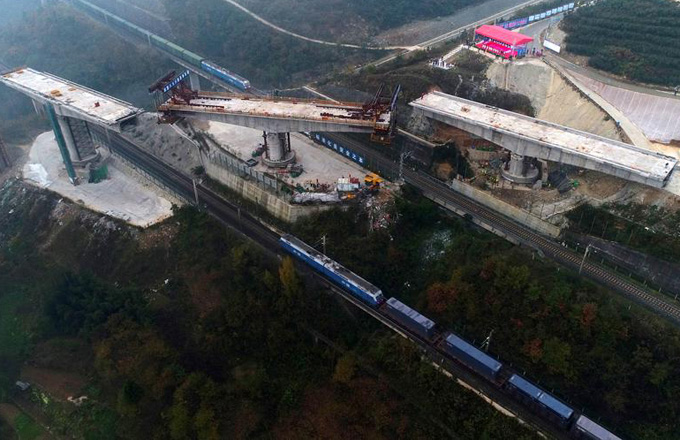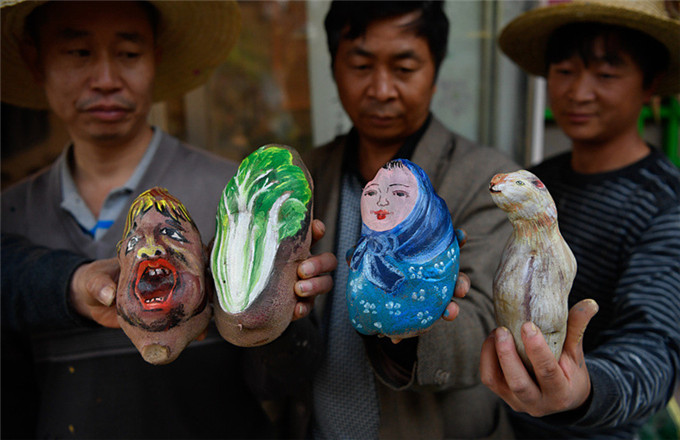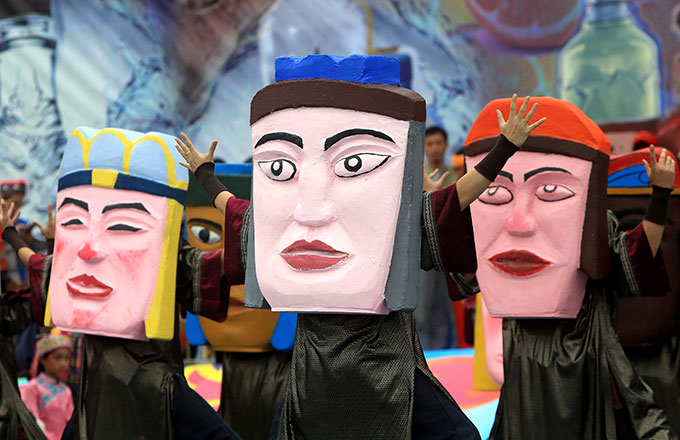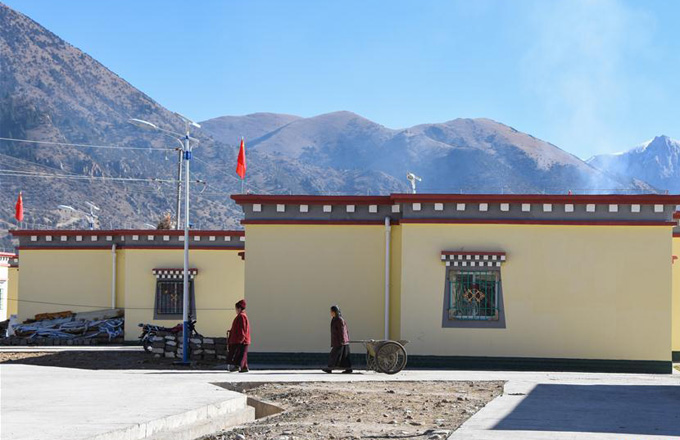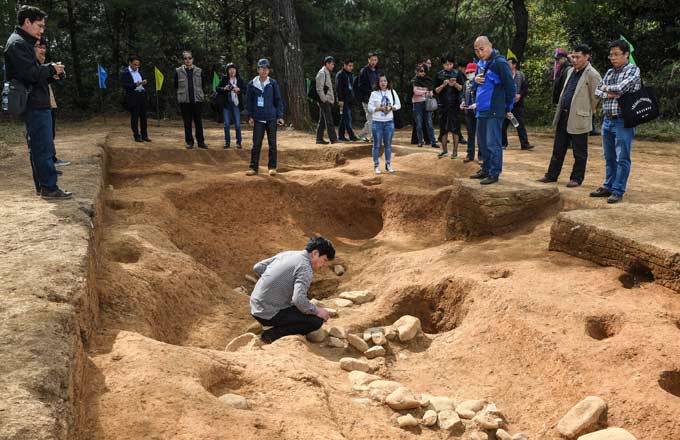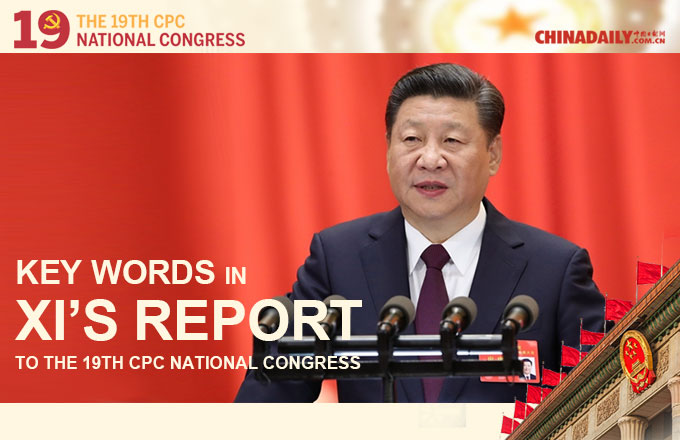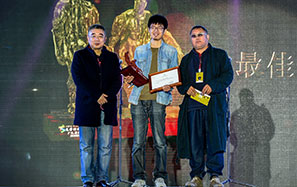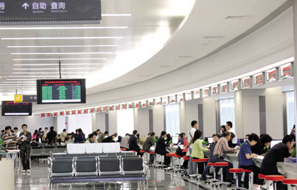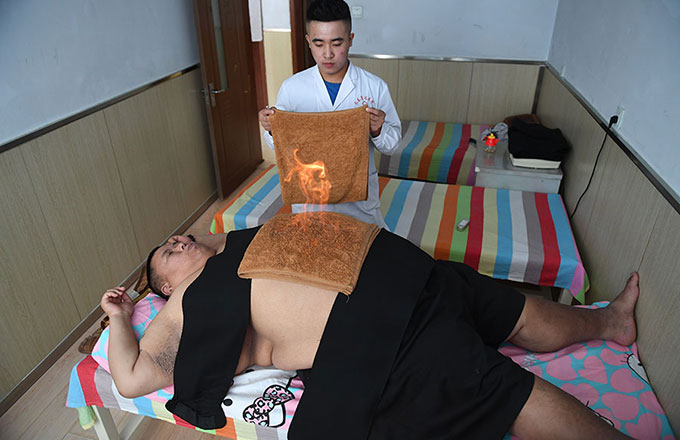Volunteer doctor provides free services in poor counties
Doctor Eckehard Scharfschwerdt has spent 15 years in some of the poorest counties in Southwest China's Yunnan province providing free medical services and training village doctors and nurses.
The 54-year-old from Baden-Würrttemberg, Germany, sometimes even paid for patients who could not afford their medical bills.
Besides being a volunteer doctor, he was also an English teacher to middle and primary school students. He offered an English corner for village kids at a high school in Honghe prefecture for over two years to stimulate their interest in studying, broaden their vision and give them personal encouragement.
To help villagers get rid of poverty in Heqing county, he ran community development projects. He bought 145 goats and then loaned them to 28 families so they could raise the goats and generate more income, and built 56 water cisterns, 48 family biogas plants, introduced small-scale silage pits and supported silkworm raising.
Scharfschwerdt, who returned to Germany last year, was deeply impressed by the progress in healthcare services in this remote part of China.
"To me, the introduction of the rural cooperative medical insurance program, and its continuous increase of coverage, has had the most crucial impact on local healthcare," he said.

When he arrived in Yunnan in 2000, many patients couldn't afford hospital treatment due to the absence of health insurance, he said.
In those days, many county-level hospitals had only very simple equipment, and medical concepts were based on personal experience rather than scientific evidence, he said.
With the introduction of health insurance in Heqing in 2006, the number of inpatients tripled because people could afford medical treatment, and a new hospital had to be built. Similar things happened all over Yunnan, he said.
For Scharfschwerdt, coming to China was like a "predestined fate".
"As a Christian, I believe it was God's calling for me to come to China. As a doctor, you need a lot of love to care for your patients wholeheartedly," he said.
So after having learned Chinese language and culture for two years in Singapore and Kunming, capital of Yunnan province, he moved to the countryside in 2001 to impart medical knowledge and skills to healthcare providers through informal bedside teaching as well as formal training courses with instructors from other countries.
In recent years, he saw major investments in healthcare, which resulted in new hospital buildings and equipment. With bigger hospitals there followed a major rejuvenation of staff, which made it easier to introduce modern concepts in diagnosis and treatment, he said.
However, there are still challenges to improve healthcare services in remote places.
The huge gap in training and skills between village doctors and hospital staff in cities needs to be bridged, he said.
"That's indeed a huge challenge," he said. "Even if the output of college-trained doctors could be doubled, there remains the challenge to get those doctors down to the countryside while everyone else wants to move upward to bigger cities."
"I welcome the government's program to finance medical training at higher vocational schools and colleges for village kids, who then have to return to county or township level to work for some years," he said.
"Besides improving basic healthcare, we need to provide continuous health education from kindergarten to retirement. Prevention is always better than treatment, both from a personal as well as a public health perspective," he said.
"However, preventive educational measures are not yet remunerated, therefore they are difficult for doctors to provide," Scharfschwerdt said.
He said the ordinary Chinese people are most dear to his heart. "There are so many unforgettable moments and encounters that I find it really hard to single out one," he said. He was moved by some farmers who, although illiterate, were eager to work with him and contribute their creativity, he said.
Scharfschwerdt was also deeply impressed by some doctors who were eager to learn and full of love for their patients.
In the past five years, China has developed so quickly that in some respects Germany seems backward, he said.
"I'm impressed by the expansion of Taobao with its express delivery services, Alipay and Tencent mobile payment, the comprehensive social platform WeChat, an ever increasing high-speed railway system, bike-sharing and a stronger focus on environmental protection. All this has contributed to an increased self-confidence, even in remoter areas," he said.
He also hoped to see a better preserved environment and culture in Yunnan province and many other areas in China.
"China is very beautiful and should be preserved for generations to come," he said. "Besides the natural environment, air, soil and water, I also hope architectural relics will be protected, including the intangible heritage, like minority culture, not just for touristy performances but as sustainable lifestyles."


